- Home
- Jack Higgins
Midnight Runner - Sean Dillon 10
Midnight Runner - Sean Dillon 10 Read online
P RAISE FOR THE THRILLERS OF J ACK H IGGINS
MIDNIGHT RUNNER
"The fun comes from the wisecracking band of dangerous but bighearted secret soldiers Higgins wheels out to save the world--and his galloping Hollywood-ready pace."
--People
"Swift and coursing with dark passion...as credible and steel-hearted as Higgins's best."
--Publishers Weekly
"Adrenaline-fueled adventure."
--Yorkshire Post
EDGE OF DANGER
"This is Higgins near the top of his game...another winner."
--Publishers Weekly
"His 32nd triumphant exercise in keeping readers hugely entertained."
--Los Angeles Times
"The action is nonstop."
--Minneapolis Star Tribune
DAY OF RECKONING
"The action is sleek and intensely absorbing, but the supreme pleasure is in those Higgins celebrates--tarnished warriors who value honor over life and who get the job done no matter what the cost."
--Publishers Weekly
"This is vintage Higgins, and heralds the long-awaited return of his most popular creation, the enigmatic Sean Dillon, former IRA gunman turned British government enforcer."
--Belfast Telegraph
THE WHITE HOUSE CONNECTION
"The White House Connection has one heckuva heroine...[who] begins a one-woman assassination spree that will keep you turning the pages."
--Larry King, USA Today
"Masterful...The White House Connection is a satisfying, suspense-filled book."
--Roanoke Times & World News
"[A] page-turning thriller."
--The Indianapolis Star
THE PRESIDENT'S DAUGHTER
"High-tension action and harrowing twists--Higgins at his best."
--Midwest Book Review
"A tight story with plenty of action."
--Chattanooga Free Press
"Sizzling."
--Copley News Service
NIGHT JUDGEMENT AT SINOS
"This is one you won't put down."
--The New York Times
DRINK WITH THE DEVIL
"A most intoxicating thriller."
--The Associated Press
"It is Dillon's likeability and the author's adroitness in giving his character the room he needs that make Higgins's novels so readable."
--The Washington Times
YEAR OF THE TIGER
"Higgins spins as mean a tale as Ludlum, Forsythe, or any of them."
--Philadelphia Daily News
ANGEL OF DEATH
"Pulsing excitement...Higgins makes the pages fly."
--New York Daily News
"The action never stops."
--The San Francisco Examiner
"A terrific read."
--The Associated Press
EYE OF THE STORM
ALSO PUBLISHED AS Midnight Man
"Heart-stopping...spectacular and surprising."
--Abilene Reporter-News
"Razor-edged...will give you an adrenaline high. It's a winner."
--Tulsa World
ON DANGEROUS GROUND
"A whirlwind of action, with a hero who can out-Bond old James. It's told in the author's best style, with never a pause for breath."
--The New York Times Book Review
"A powerhouse tale of action and adventure."
--The Tampa Tribune-Times
SHEBA
"When it comes to thriller writers, one name stands well above the crowd--Jack Higgins."
--The Associated Press
THUNDER POINT
"Dramatic...authentic...one of the author's best."
--The New York Times
"A rollicking adventure that twists and turns."
--The San Diego Union-Tribune
TITLES BY JACK HIGGINS
Midnight Runner
The Graveyard Shift
Edge of Danger
Day of Reckoning
The Keys of Hell
The White House Connection
In the Hour Before Midnight
East of Desolation
The President's Daughter
Pay the Devil
Flight of Eagles
Year of the Tiger
Drink with the Devil
Night Judgement at Sinos
Angel of Death
Sheba
On Dangerous Ground
Thunder Point
Eye of the Storm (also published as Midnight Man)
The Eagle Has Flown
Cold Harbour
Memories of a Dance-Hall Romeo
A Season in Hell
Night of the Fox
Confessional
Exocet
Touch the Devil
Luciano's Luck
Solo
Day of Judgment
Storm Warning
The Last Place God Made
A Prayer for the Dying
The Eagle Has Landed
The Run to Morning
Dillinger
To Catch a King
The Valhalla Exchange
The Khufra Run
A Game for Heroes
The Wrath of God
MIDNIGHT RUNNER
JACK HIGGINS
BERKLEY BOOKS,NEW YORK
This is a work of fiction. Names, characters, places, and incidents either are the product of the author's imagination or are used fictitiously, and any resemblance to actual persons, living or dead, business establishments, events, or locales is entirely coincidental.
MIDNIGHT RUNNER
A Berkley Book / published by arrangement with the author
Copyright (c) 2002 by Harry Patterson.
Cover design and photo illustration copyright (c) 2002 by Rob Wood/Wood Ronsaville Harlin, Inc.
All rights reserved.
This book, or parts thereof, may not be reproduced in any form without permission. The scanning, uploading, and distribution of this book via the Internet or via any other means without the permission of the publisher is illegal and punishable by law. Please purchase only authorized electronic editions, and do not participate in or encourage electronic piracy of copyrighted materials. Your support of the author's rights is appreciated. For information address: The Berkley Publishing Group, a division of Penguin Putnam Inc., 375 Hudson Street, New York, New York 10014.
ISBN: 1-4295-0535-4
BERKLEY(r)
Berkley Books are published by The Berkley Publishing Group, a division of Penguin Putnam Inc.,
375 Hudson Street, New York, New York 10014.
BERKLEY and the "B" design are trademarks belonging to Penguin Putnam Inc.
Death is the Midnight Runner.
ARAB PROVERB
Contents
IN THE BEGINNING
Chapter 1
WASHINGTON LONDON
Chapter 2
Chapter 3
Chapter 4
LONDON OXFORD HAZAR
Chapter 5
Chapter 6
HAZAR
Chapter 7
Chapter 8
OXFORD LONDON
Chapter 9
Chapter 10
Chapter 11
LONDON BOSTON WASHINGTON LONDON
Chapter 12
Chapter 13
Chapter 14
HAZAR
Chapter 15
LONDON DAUNCEY PLACE
Chapter 16
MIDNIGHT RUNNER
IN THE BEGINNING
1
D ANIEL QUINN WAS A GOOD ULSTER NAME. IRISH Catholic, as a young man, his grandfather had fought with Michael Collins during the Irish
War of Independence, and then, a price on his head, he'd fled to America in 1920.
He'd become a construction worker in New York and Boston, but it was as a member of that most secret of Irish societies, the Irish Republican Brotherhood, that he'd begun to gain real power. Employers learned to fear him. Within a year, he was an employer himself and on his way to becoming a millionaire.
His son, Paul, was born in 1921. From an early age, Paul was obsessed with flying, and in 1940, while a student at Harvard, he'd traveled to England on impulse and, using his father's name, joined the RAF as a fighter pilot, an American volunteer.
His father, anti-Brit, was horrified and then proud of him. Paul earned a DFC in the Battle of Britain, and then moved on to the American Army Air Force in 1943 and earned another one there. In 1944, however, Paul Quinn was badly shot up in a Mustang fighter over Germany. Luftwaffe surgeons did what they could, but he would never be the same again.
Released from prison camp in 1945, he went home. His father had made millions out of the war, and Paul Quinn married and had a son, Daniel, born in 1948, though his mother died in childbirth. Paul Quinn never completely regained his health, however, and contented himself as an attorney in the legal department of the family business in Boston, a sinecure, really.
Daniel, a brilliant scholar, also went to Harvard, to study economics and business administration, and by the time he was twenty-one, he had his master's degree. The logical next step would have been to go into the family business, which now numbered hundreds of millions of dollars' worth of property, hotels, and leisure, but his grandfather had other ideas: a doctorate, and then a glittering future in politics, was what he had in mind.
Strange how life often swings on small things. Watching TV one evening, seeing the death and carnage in Vietnam on the news, the old man expressed his disapproval.
"Hell, we shouldn't even be there."
"But that isn't the point," Daniel replied. "We are there."
"Well, thank God you're not."
"So we leave it to the black kids who never stood a chance, to the working-class kids, to Hispanics? They're getting slaughtered by the thousands."
"It's not our business."
"Well, maybe I should make it mine."
"Damn fool," the old man said, a little fearful. "Don't you do anything stupid, you hear me?"
The following morning, Daniel Quinn presented himself at the downtown Army recruiting office. He began with the infantry, and then joined Airborne as a paratrooper. His first tour brought him a Purple Heart for a bullet in the left shoulder and a Vietnamese Cross of Valor. Home on leave, his grandfather saw the uniform, the medals, and cried a little, but Irish pride won the day.
"I still say we shouldn't be there," he said, looking at his grandson's tanned face, the skin taut over the cheekbones. There was something in his eyes that hadn't been there before.
"And I say again, we are, so we have to do it right."
"What about a commission?"
"No, Granddad. Sergeant is fine."
"You're crazy."
"I'm Irish, aren't I? We're all a little crazy."
His grandfather nodded. "How long have you got home?"
"Ten days."
"Then straight back?"
Daniel nodded. "I'm going into the Special Forces."
The old man frowned. "What's that?"
"You don't want to know, Granddad, you don't want to know."
"Well, try and have a good time while you're here. See a few girls."
"I surely will."
Which he did, and then it was back to the green hell of Vietnam, the constant throbbing of the helicopters, death and destruction all around, all the roads inevitably leading to Bo Din and his own personal appointment with destiny.
C amp Four was deep in the bush north of the Mekong Delta, the river snaking through marshland and great banks of reeds and the occasional village. It was raining that day, a monsoon kind of rain that hung like a gray curtain, making it difficult to see much. Camp Four was a jumping-off point for Special Forces deep penetration operations, and Quinn had been ordered there just as they'd lost their master sergeant.
As usual, he'd hitched a lift in a medevac helicopter, but, things being stretched, this contained only one pilot and a young medic-cum-air gunner named Jackson, who sat at the heavy machine gun and peered out the open door. The helicopter dropped lower as visibility became worse in the rain. There were paddy fields below, the brown line of the river, and Quinn stood, held on, and looked down.
A sudden explosion came over to the right, flames mushrooming, and as the pilot banked, a village emerged from the rain, some of the houses on stilts on the river. Quinn saw canoes and fishermen's flatboats, people crowding into them, some of them already pushing off. He also saw Vietcong in straw hats and black pajamas, heard the distinctive crack of AK47s, and below him people began toppling from boats into the water.
As the helicopter approached, the VC looked up in alarm and some of them raised their rifles and fired. Jackson returned fire with his heavy machine gun.
"Christ, no!" Quinn told him. "You'll get the civilians, too."
The pilot called over his shoulder, "We'd better get out of here," and banked away as a round or two hit them. "That's Bo Din. Lots of VC activity in this area."
It was at that moment that Quinn saw the mission on the edge of the village, the tiny church, the small group of people in the courtyard, Vietcong moving up the street.
"It's a nun with a dozen kids," Jackson said.
Quinn grabbed the pilot by the shoulder. "We'll have to put down and get them."
"We'd be lucky to get off again," the pilot shouted. "Look down the road."
There were Vietcong everywhere, at least fifty, swarming between the houses, hurrying to the mission.
"Courtyard's too small. I'd have to land in the street. It won't work."
"Okay, just drop me off, then get the hell out of here and bring in the heavy brigade."
"You're nuts."
Quinn looked down at the nun in her white tropical habit. "We can't leave that woman or those kids. Just do it."
He stuffed the pockets of his camouflage jacket with flares and grenades, slung pouches of magazine around his neck, and found his M16. Jackson fired a long burst down the street that scattered the Vietcong and knocked several down. The helicopter hovered just above the ground and Quinn jumped.
"I guess I'm nuts, too," and Jackson followed him, clutching an M16, a belt of magazines around his neck, a medical bag over his shoulder. There was a storm of firing as the Vietcong started up the street again, and the two Americans ran to the entrance of the courtyard where the nun was coming forward with the children.
"Back, Sister," Quinn called. "Get back." He pulled his grenades out and tossed one to Jackson. "Together."
They pulled the pins, counted to three, stepped out, and lobbed. The explosions were deafening. A number of Vietcong went down, the rest retreated for the moment. Quinn turned to the nun. She was in her early twenties, with a pale and pretty face. When she spoke, it became clear she was English.
"Thank God you came. I'm Sister Sarah Palmer. Father da Silva is dead."
"Sorry, Sister, there's only the two of us. The helicopter's gone for help, but God knows how long it will take."
Jackson fired a burst down the road and called, "What the hell do we do? We can't hold this place. They'll be all over us."
The wall at the rear had crumbled over the years. Beyond, great banks of reeds at least ten feet tall faded into the downpour.
Quinn said to Jackson, "Take them into the swamp, do it now."
"And you?"
"I'll hold things here as long as I can."
Jackson didn't even argue. "Let's move it, Sister," and she didn't argue either.
Quinn watched them go, the children greatly upset, some crying. They scrambled across the crumbling wall, and he took a grenade from his pocket and pulled the pin. He heard the sound of an engine
, and when he peered round the wall, a battered jeep was coming up the street, two Vietcong standing up at a machine gun behind the driver. God knows where they'd gotten it from, but more Vietcong sheltered behind. They started to fire, and Quinn tossed the grenade at the last possible moment. It dropped neatly into the jeep, and there was a hell of an explosion, bits of the vehicle and broken men tossed in the air, flames everywhere.
The rest of the Vietcong ran for their lives. A silence descended, with only the rush of the rain. Time to go. Daniel Quinn turned, ran to the crumbling wall, scrambled across, and made for the reeds. A moment later, he jumped into those reeds, pausing only to fit his bayonet to the M16, then he plunged forward.
S ister Sarah Palmer led the way, holding the hand of one child and carrying the smallest, the others following. She spoke softly to them in Vietnamese, telling them to be quiet. Jackson followed at the rear, M16 ready.
They came out into a dark pool and she stood there, thigh deep, her habit hitched up to her belt. The rain thundered down, and there was a kind of white mist. She looked over her shoulder at Jackson.
"If I've got my bearings, there should be a road over to the right."
"And what good will that do, Sister? They'll run us down, and to be honest, I'm more concerned about Quinn. There hasn't been a shot fired since that explosion."
"Do you think he's dead?"
"I sure as hell hope not."
Suddenly, a young Vietcong stepped out of the reeds behind him, a bayonet on the end of his AK, and stabbed Jackson in the back under the left shoulder blade, missing his heart by inches. He cried out and went down on his knees. On the other side of the pool, three more VC emerged, all very young, one of them a girl, clutching AKs.
Jackson tried to get up, using his M16 as a crutch. In silence, the Vietcong watched gravely, then there was a sudden savage cry and Quinn burst out of the reeds, firing from the hip, ravaging all three in a kind of slow motion. The fourth, the one behind, surged forward, too late, as Quinn turned and bayoneted him.
Quinn put an arm around Jackson. "How bad is it?"
"Hurts like hell. But I'm still here. There are some battle packs in my bag, but I think we better get out of here first."

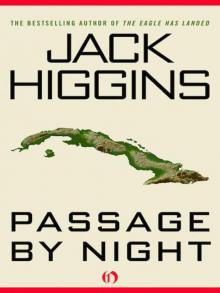 Passage by Night (v5)
Passage by Night (v5)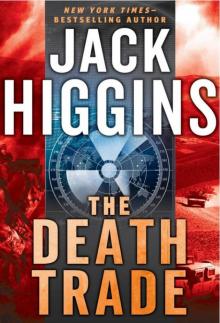 The Death Trade sd-20
The Death Trade sd-20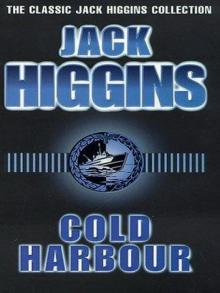 Cold Harbour
Cold Harbour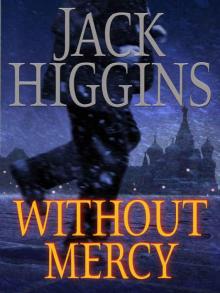 Without Mercy
Without Mercy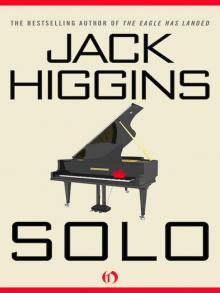 Solo (Aka the Cretan Lover)(1980)
Solo (Aka the Cretan Lover)(1980)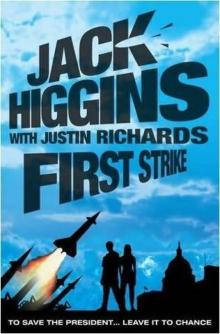 First Strike
First Strike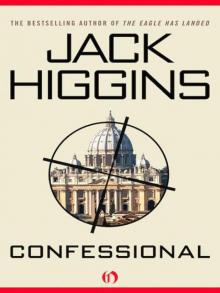 Confessional - Devlin 03 (v5)
Confessional - Devlin 03 (v5)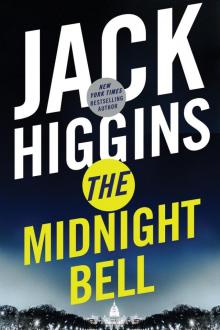 The Midnight Bell
The Midnight Bell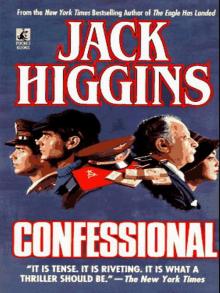 Confessional
Confessional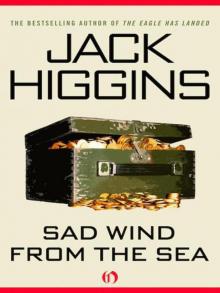 Sad Wind from the Sea (v5)
Sad Wind from the Sea (v5)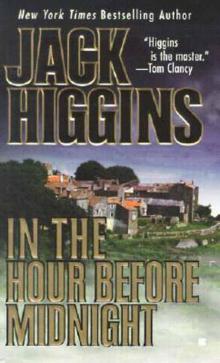 In The Hour Before Midnight aka The Sicilian Heritage
In The Hour Before Midnight aka The Sicilian Heritage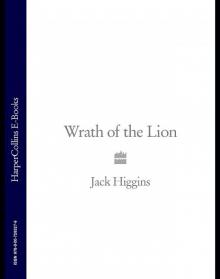 Wrath of the Lion
Wrath of the Lion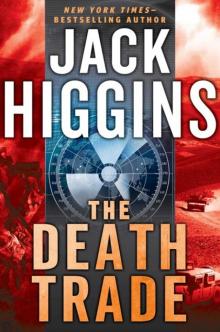 SDillon 20 - The Death Trade
SDillon 20 - The Death Trade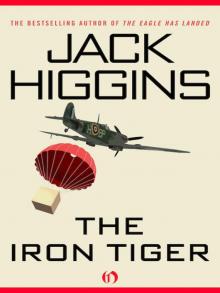 the Iron Tiger (1974)
the Iron Tiger (1974)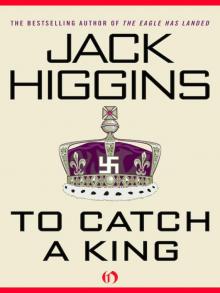 To Catch a King
To Catch a King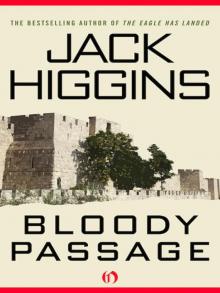 Bloody Passage (1999)
Bloody Passage (1999)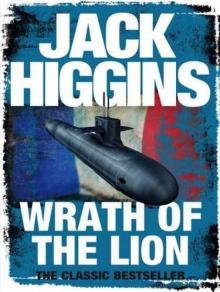 Wrath of the Lion sd-8
Wrath of the Lion sd-8 Sharp Shot
Sharp Shot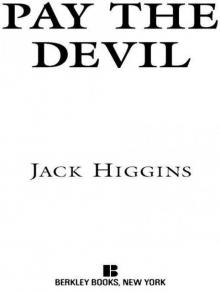 Pay the Devil (v5)
Pay the Devil (v5) A Devil Is Waiting
A Devil Is Waiting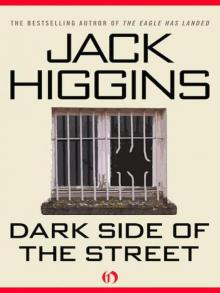 Dark Side of the Street - Simon Vaughn 01 (v5)
Dark Side of the Street - Simon Vaughn 01 (v5)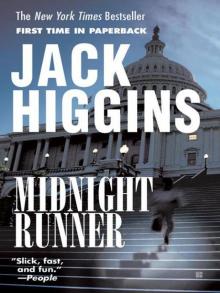 Midnight Runner - Sean Dillon 10
Midnight Runner - Sean Dillon 10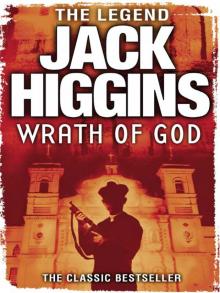 Wrath of God
Wrath of God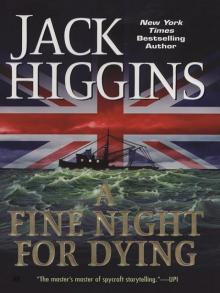 A Fine Night for Dying
A Fine Night for Dying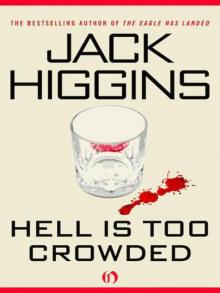 Hell Is Too Crowded v5)
Hell Is Too Crowded v5)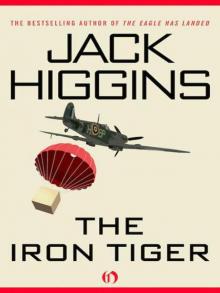 the Iron Tiger (v5)
the Iron Tiger (v5)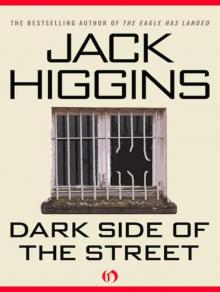 Dark Side of the Street pc-5
Dark Side of the Street pc-5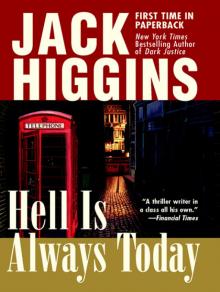 Hell Is Always Today
Hell Is Always Today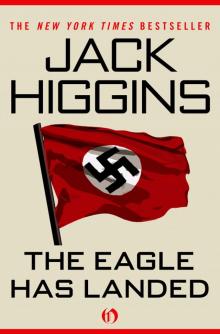 Eagle Has Landed
Eagle Has Landed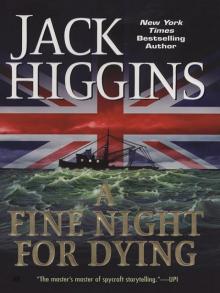 A Fine Night for Dying pc-6
A Fine Night for Dying pc-6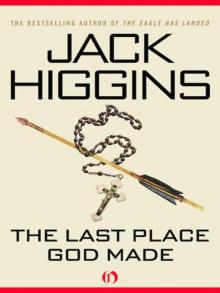 the Last Place God Made (v5)
the Last Place God Made (v5)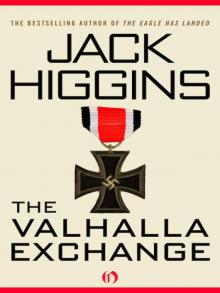 the Valhalla Exchange (1976)
the Valhalla Exchange (1976)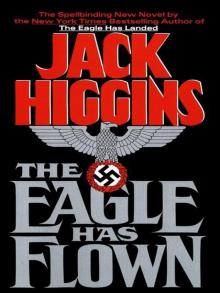 The Eagle Has Flown
The Eagle Has Flown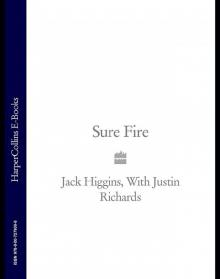 Sure Fire
Sure Fire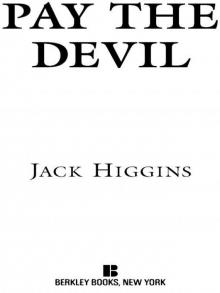 Pay the Devil (1999)
Pay the Devil (1999)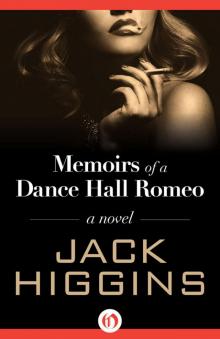 Memoirs of a Dance Hall Romeo
Memoirs of a Dance Hall Romeo![a Prayer for the Dying (1974)[1] Read online](http://i1.bookreadfree.com/i1/04/02/a_prayer_for_the_dying_19741_preview.jpg) a Prayer for the Dying (1974)[1]
a Prayer for the Dying (1974)[1]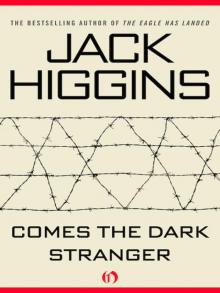 Comes the Dark Stranger
Comes the Dark Stranger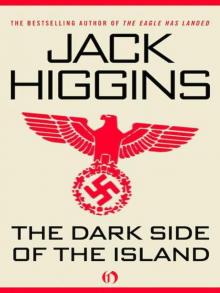 Dark Side Of the Island (v5)
Dark Side Of the Island (v5)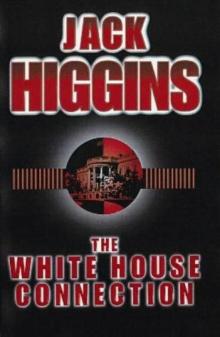 The White House Connection sd-7
The White House Connection sd-7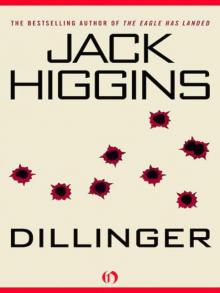 Dillinger (v5)
Dillinger (v5) Eye of the Storm
Eye of the Storm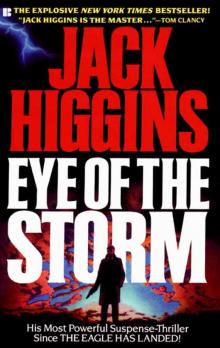 Eye Of The Storm aka Midnight Man
Eye Of The Storm aka Midnight Man A Darker Place
A Darker Place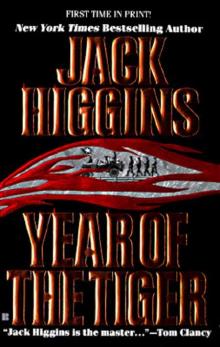 Year Of The Tiger
Year Of The Tiger Death Run
Death Run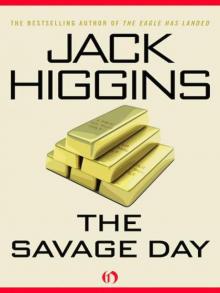 the Savage Day - Simon Vaughn 02 (v5)
the Savage Day - Simon Vaughn 02 (v5)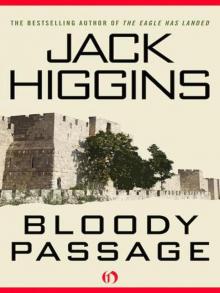 Bloody Passage (v5)
Bloody Passage (v5)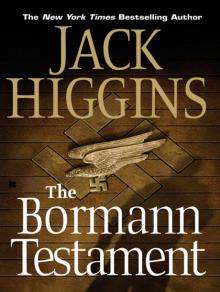 The Bormann Testament
The Bormann Testament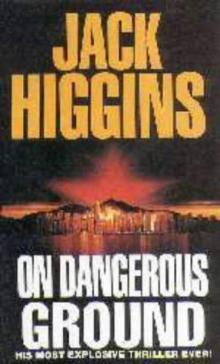 On dangerous ground sd-3
On dangerous ground sd-3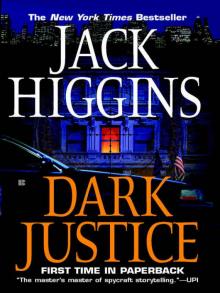 Dark Justice
Dark Justice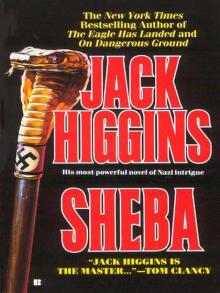 Sheba
Sheba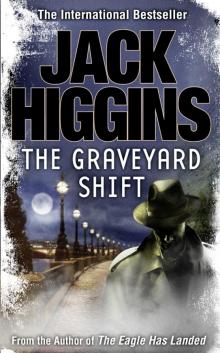 The Graveyard Shift
The Graveyard Shift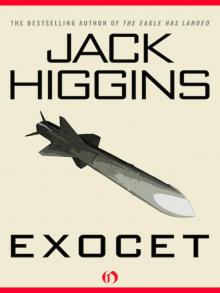 Exocet (1983)
Exocet (1983)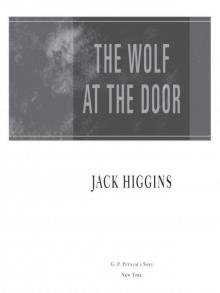 The Wolf at the Door
The Wolf at the Door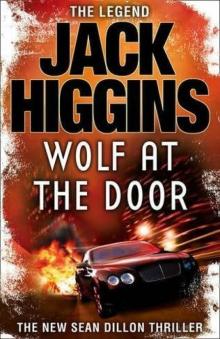 The wolf at the door sd-17
The wolf at the door sd-17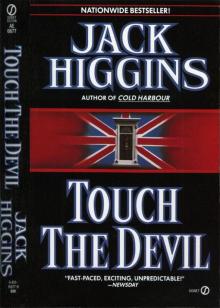 Touch The Devil
Touch The Devil The President’s Daughter
The President’s Daughter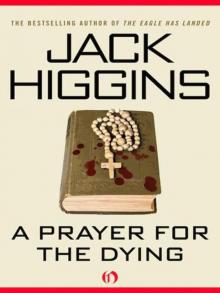 A Prayer for the Dying (v5)
A Prayer for the Dying (v5)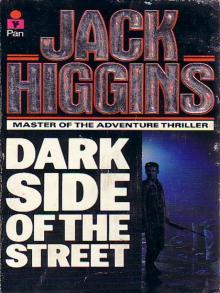 Dark Side Of The Street
Dark Side Of The Street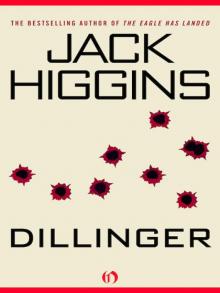 Dillinger (1983)
Dillinger (1983)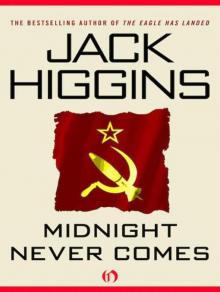 Midnight Never Comes pc-4
Midnight Never Comes pc-4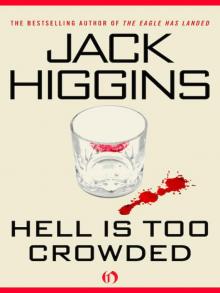 Hell Is Too Crowded (1991)
Hell Is Too Crowded (1991)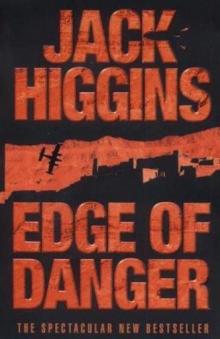 Edge of Danger sd-9
Edge of Danger sd-9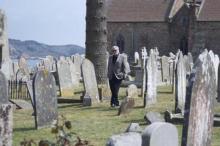 The Thousand Faces of Night (v5)
The Thousand Faces of Night (v5)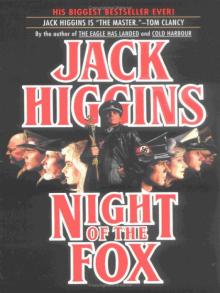 Night Of The Fox
Night Of The Fox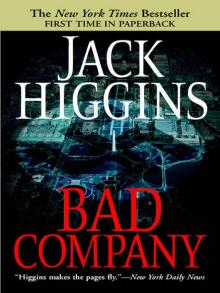 Bad Company
Bad Company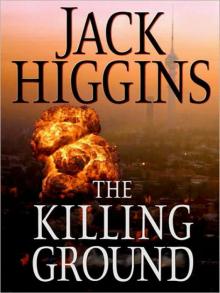 The Killing Ground
The Killing Ground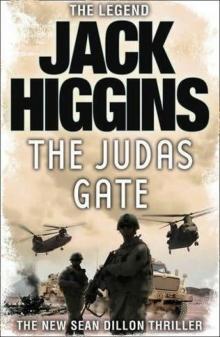 The Judas gate sd-18
The Judas gate sd-18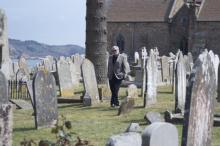 The Thousand Faces of Night (1961)
The Thousand Faces of Night (1961)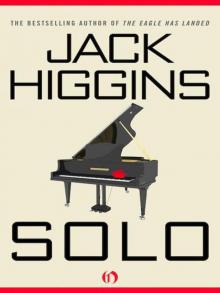 Solo (Aka the Cretan Lover) (v5)
Solo (Aka the Cretan Lover) (v5)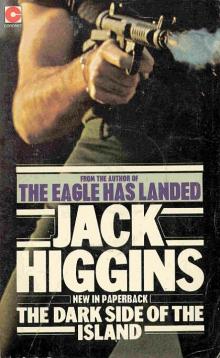 The Dark Side Of The Island
The Dark Side Of The Island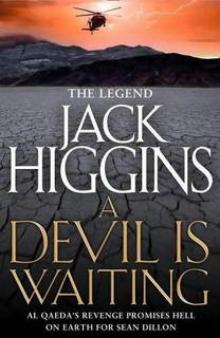 A Devil is vaiting sd-19
A Devil is vaiting sd-19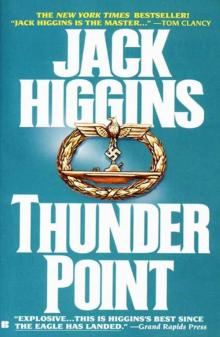 Thunder Point
Thunder Point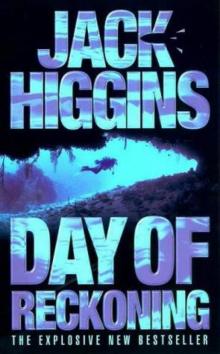 Day of Reckoning sd-8
Day of Reckoning sd-8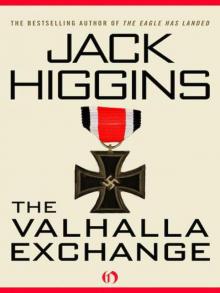 the Valhalla Exchange (v5)
the Valhalla Exchange (v5)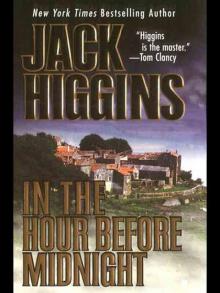 In the Hour Before Midnight
In the Hour Before Midnight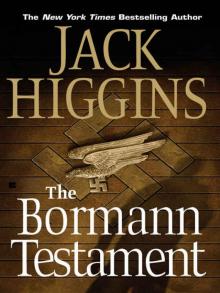 The Bormann Testament (The Testament of Caspar Schultz)
The Bormann Testament (The Testament of Caspar Schultz) The Judas Gate
The Judas Gate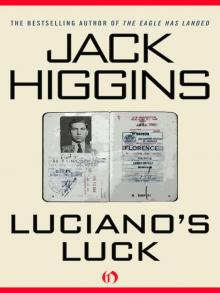 Luciano's Luck
Luciano's Luck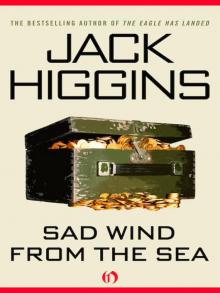 Sad Wind from the Sea (1959)
Sad Wind from the Sea (1959)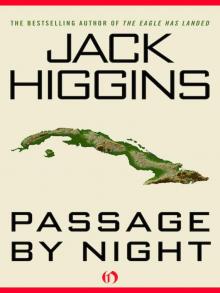 Passage by Night (1987)
Passage by Night (1987)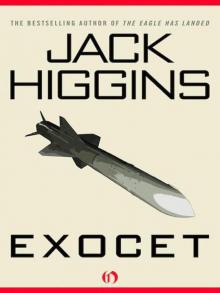 Exocet (v5)
Exocet (v5)